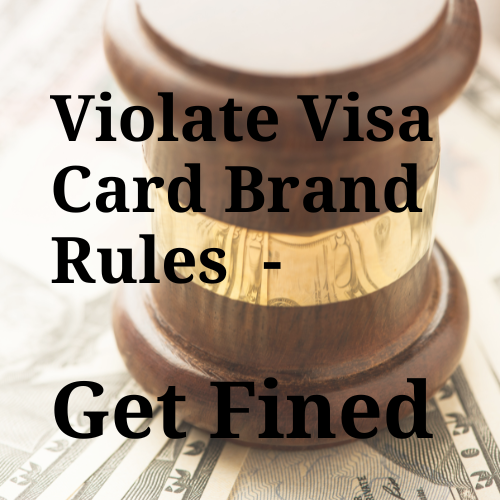Why Do You Need A Credit Card Processor? And What Do They Do For Me Anyway?

As a merchant, have you ever wondered how credit card processing really works? Or why you need to have a credit card processor to accept payments? Probably not.
But, there are aspects of credit card processing that you probably have wondered, at least once in your life as a business owner. Like, “Why do I have to pay so much?” And, “Why can it sometimes be so hard to get approved for a merchant account to accept credit card payments?”
Most merchants don’t realize that credit card processing is actually a pretty complex process. It involves a multitude of banking and financial entities to complete each and every transaction. They all must come together through the proper lines of communication and under rigorous security protocols. And these entities assume significant risk to provide you with your goal: accepting payments in whichever form the customer prefers.
Of course, you don’t have to become an expert in the ins-and-outs of credit card processing to get a merchant account. But it is important to understand the basics of processing. This basic knowledge will help you get the best rates possible for accepting credit cards and payments in your business. And it will also help you recognize an honest credit card processor and when you are being taken advantage of.
That being said, the goal of today’s article is to give you a bird’s-eye view of the process of accepting payments, including what a credit card processor does, while also keeping it short and sweet.
How does credit card processing work?
Of course, it all begins with you and your customer. You are each the beginning and the end of the full circle of accepting payments.
Obviously, the whole process starts when your customer wants to purchase an item from you. They pull out their credit card and dip the chip into your EMV compatible terminal to pay for it, and you sell them the product. But what is actually happening with that information?
It may surprise you how many more players a payment transaction involves. Aside from the merchant and the consumer, there’s also the card issuing bank, the acquiring bank, the card network (card brands), and of course the merchant account provider.
Let’s briefly go over each of these players and their role in credit card processing.
Who are the Credit Card Brands and the Card Brand Association?
The card brands are the financial entities that created each type of credit card. The four major cards brands in the U.S. are Visa, MasterCard, American Express, and Discover. The card brands govern the rules for completing a payment transaction using credit cards, and each card brand has their own set of rules. Card brands, as part of the credit card association, set the base rates for accepting credit card transactions.
The major card brands also set and monitor the security standards for transfer during payment card transactions. These standards ensure the safe and secure storage and transmission of all credit card data. These standards are called Payment Card Industry Data Security Standards or PCI DSS.
Lastly, card brands participate in the facilitation of each individual payment transaction. The acquiring bank forwards the transaction information from the merchant to the card brand who matches and validates the payment information. They then forward that information to the correct card issuing bank for payment completion. For this assistance, card brands impose a fee on each credit card transaction. Card brand fees are included in the base Interchange Fees.
Consumer's credit card issuing bank.
The consumer’s bank is not their personal bank account, as it might seem (unless they are using an ATM card, but that’s another article). This refers to the bank that issued the Visa or MasterCard credit card to your customer. Major card issuing banks include Wells Fargo, Chase, Bank of America and Citi, to name a few. We consider this bank the credit issuing bank, because a credit card is basically a revolving line of credit. When they receive a transaction requesting payment, they either approve or deny the request based on the customers funds or credit worthiness. They are also responsible for releasing the funds once the transaction has been settled.
Merchant Bank or "Acquiring" bank.
In order for a merchant to accept credit cards of any kind of payment other than cash, they must first have a merchant account. The acquiring bank is the bank that issues the business owner their merchant account. This is the bank that backs a merchant’s credit card transactions and is ultimately responsible for depositing the funds from those credit card sales into the business bank account.
One might be tempted to think that when a customer purchases an item, the credit card issuing bank sends the payment to the merchant, and that’s the extent of it. But there is actually a whole myriad of middlemen touching all the data and funds in between.
The acquiring bank (or processor) is actually the entity that funds the merchant for the purchase. They are basically fronting the money to the merchant. Once the processor or acquiring bank has funded the merchant’s account for the sales, they then must request reimbursed from the card issuing bank, who then waits for the customer to pay them back. It’s much like applying for a loan. This inherent risk that comes with loaning the business money is why you have to “apply” for, and be approved for, a merchant account.
In steps the processor:
The processor is the entity that facilitates access to the card network. This access allows for the communication of payment information from one party to another and back again for approval. The processor provides the terminal or gateway, hardware, and/or software needed to access the payment information pathway. It is this gateway that connects the merchant to the card network.
The payment information gathered, as well as information pertaining to the merchant requesting payment, is collected by the terminal or gateway and then sent over the card network to the customer's bank. Once the customer’s bank either approves or denies the purchase, it will reverse order and they send the information back through the pathway to the merchant.
All payment transactions must adhere to strict security rules set by the Payment Card Industry Data Security Standard (PCI DSS). The processor is the one responsible for making sure that all of these protocols are followed. For providing the merchant with these services, the processor charges a fee.
They generally add this fee on to the base Interchange fees set by the card network. The fee is ultimately a percentage of each transaction. But instead of calling it a percentage, the processor’s fee is expressed as a basis point. One basis point is equivalent to 0.01% (1/100th of a percent) or 0.0001 in decimal form.
We usually refer to this type of pricing structure as “Interchange Plus” pricing. This is because the processor starts with the fees passed through to the merchant by the card network and then adds their fee to it - Interchange Plus.
Who, or what then, is the card network?
Visa, MasterCard and Discover along with the card issuing banks are “the network”. Now that we know the credit cards are actually issued by various banks, such as Chase, and not Visa or MasterCard, let’s talk about what they are responsible for in this whole payments game.
These entities are the card associations that essentially govern the members of the network, including all guidelines for qualification. They established and maintain the interchange network in order to act as the mediator between the merchant’s acquiring bank and the customer’s card issuing bank. They’re also who set the fees associated with using the interchange to transfer payment transaction data back and forth. The interchange rates will generally make up the majority of the total fees associated with accepting credit cards.
How to find a top-of-the-line credit card processor.
Now you understand the basics of credit card processing and just how many players have a hand in making sure that everything runs smoothly. You’re probably beginning to realize how important it is to choose a processor who takes their position seriously. You don’t have a choice in the issuing bank or the card network. The only thing you do have control over is which credit card processor you choose to work with.
You want a merchant service provider with the best options for your merchant account and at the most competitive price. You also need one who will provide you with first-rate customer service. It’s imperative to do a bit of research before just going with the person promising you the lowest price. This knowledge will help ensure you don’t make a mistake when choosing your merchant service provider.
A top of the line processor or MSP (merchant service provider) will have extensive experience in the payments industry. They will be able to demonstrate a broad understanding of payments under industry regulations. And they will strive to build strategic partnerships in order to create a reliable network of options for their clients.
MonerePay is an experienced merchant service provider. We’re proud to offer a staff of ETA Certified Payments Professionals. ETA Certified advisors hold themselves to the highest level of professionalism and personal integrity while providing clients with reliable payment solutions and complete transparency.
They’re dedicated to keeping abreast of advancements in the payments industry that will help you remain relevant in the marketplace. This dedication to customer service will be the bridge that allows you to not only successfully conduct business on a day-to-day basis, but focus on building and growing your business.

(1).jpg)





